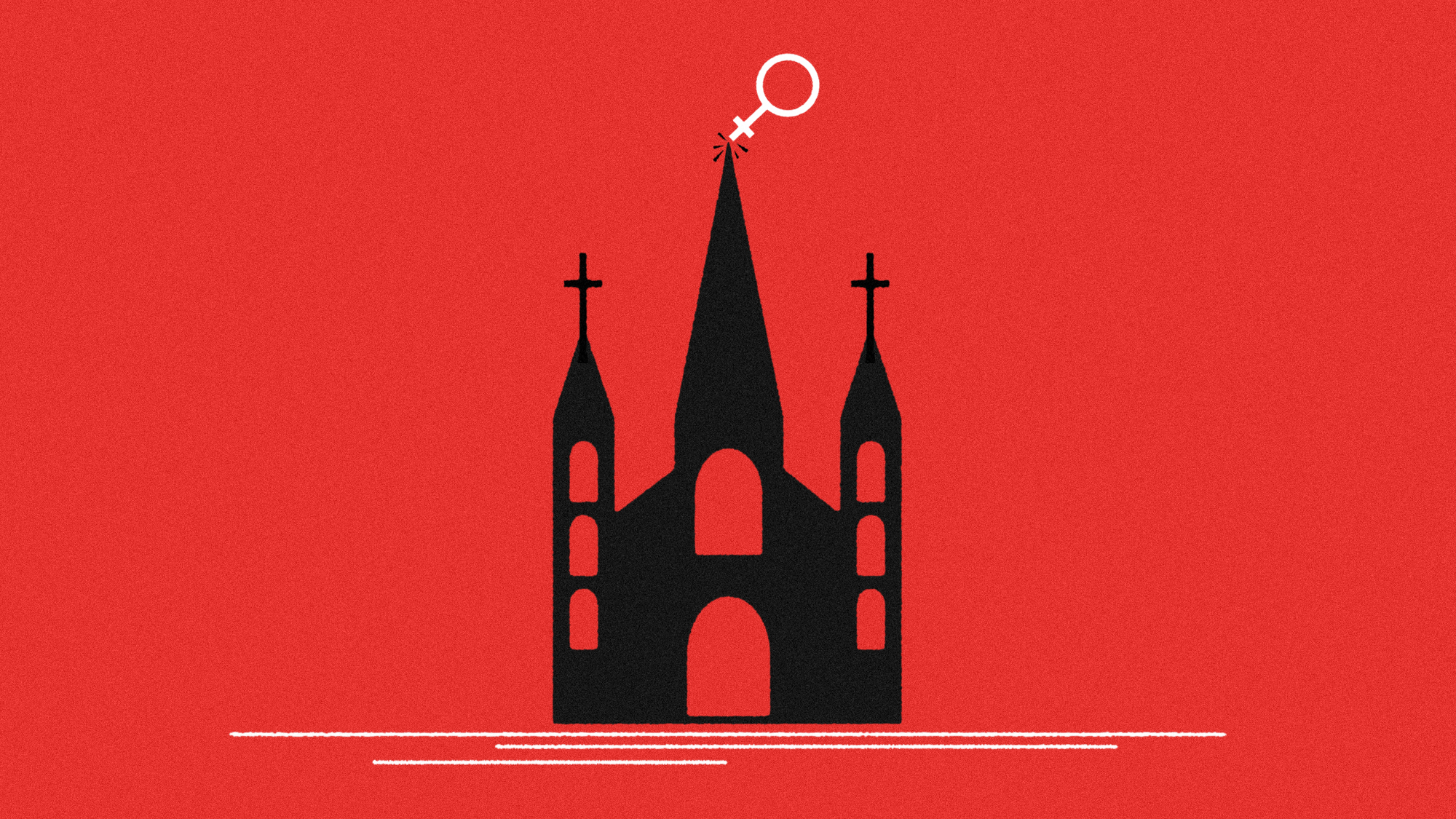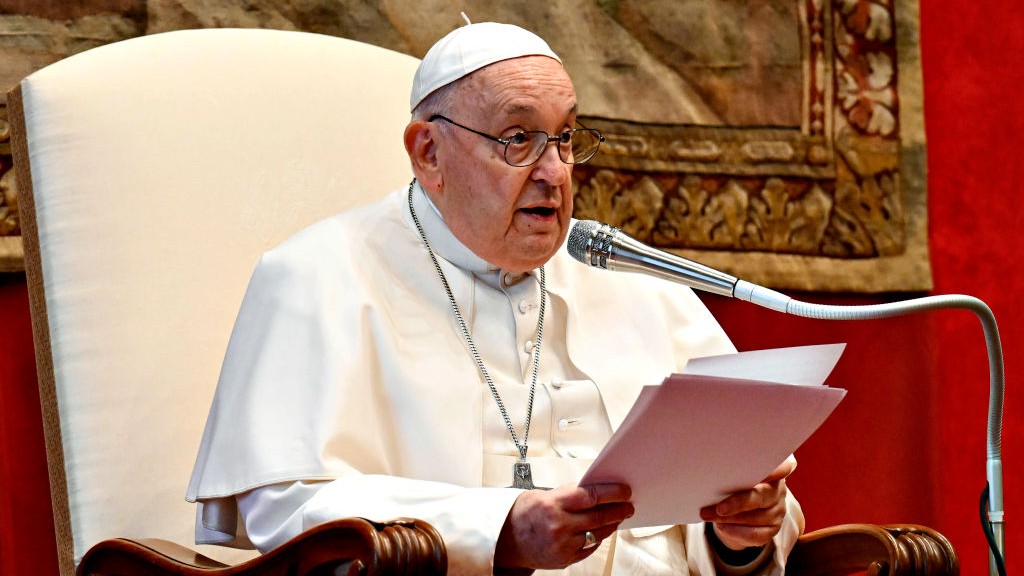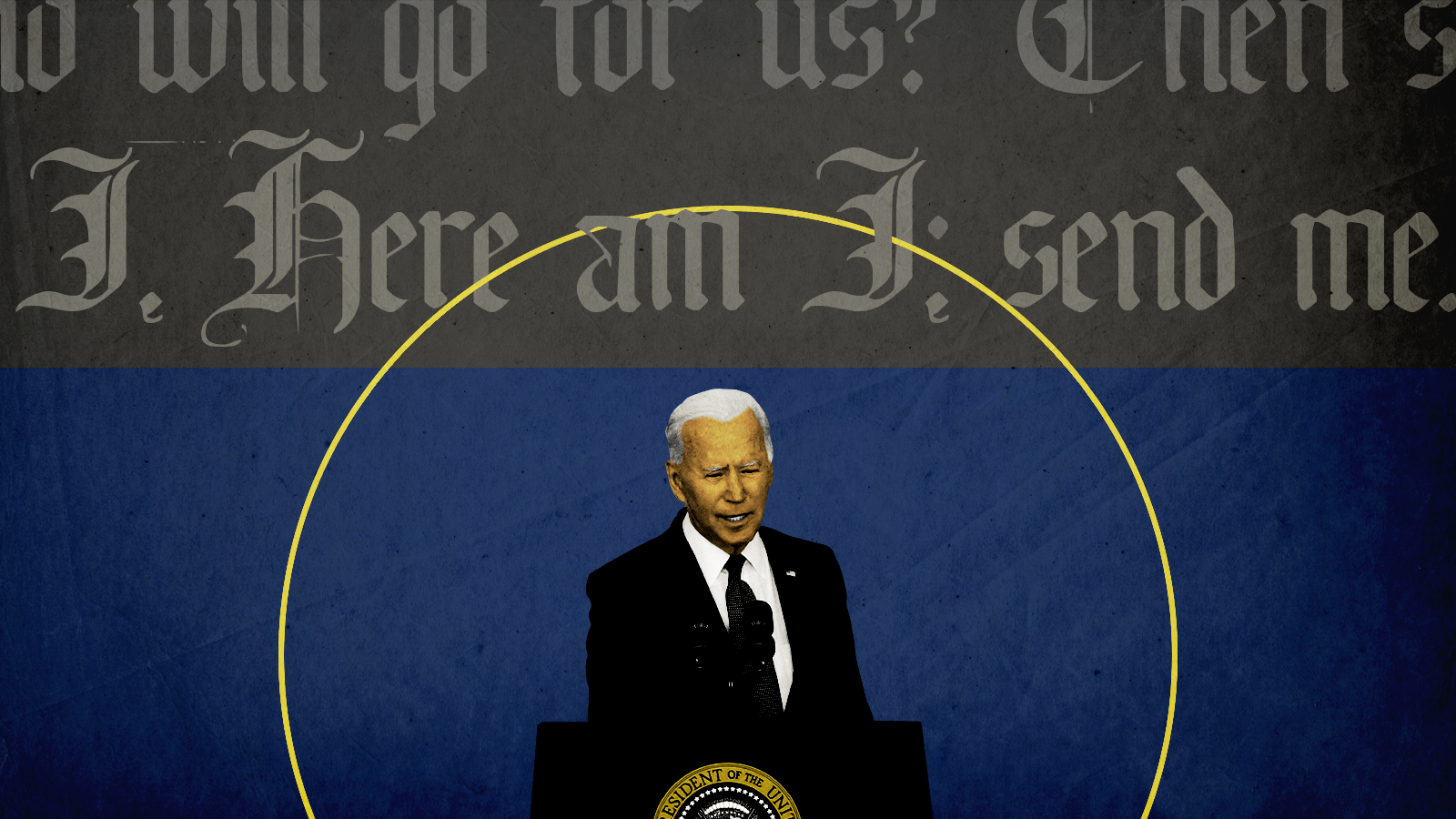Will anyone be happy with a post-religious America?


A free daily email with the biggest news stories of the day – and the best features from TheWeek.com
You are now subscribed
Your newsletter sign-up was successful
Post-religious America is growing up. That's the bottom line of a new survey by Deseret News and Marist Poll. Researchers saw declines in religious practice in most demographic groups, but generational differences were especially stark.
According to the report, Americans "60 or older (43 percent) are more likely than their younger counterparts to attend religious services at least weekly." By contrast, just "21 percent of those 18-29, 25 percent of those 30-44, and 27 percent of those 45-59 attend religious services at least weekly." That likely inflates real numbers, since "desirability bias" encourages respondents to report their aspirations rather than their actual practices.
Post-religious doesn't mean atheist. Like other recent research, the new study found that majorities continue to express religious beliefs even while they disengage from organized worship and formal institutions. Fifty-four percent continue to express belief in God "as described in the Bible. " And a further 29 percent profess to believe in a non-Biblical God or some other higher power. The large cohort of professed believers is roughly consistent with the 71 percent of Americans who describe themselves as "spiritual," whether or not they embrace any traditional theology.
The Week
Escape your echo chamber. Get the facts behind the news, plus analysis from multiple perspectives.

Sign up for The Week's Free Newsletters
From our morning news briefing to a weekly Good News Newsletter, get the best of The Week delivered directly to your inbox.
From our morning news briefing to a weekly Good News Newsletter, get the best of The Week delivered directly to your inbox.
But it's clear that the religious landscape continues to fragment as Americans pursue more personalized forms of expression and association. Although the report doesn't speculate about the causes, it's possible that interruption of normal services and other activities due to COVID-19 encouraged this preexisting trend. If there's a silver lining for religious leaders and institutions, it's the finding that 87 percent of Americans think it's important to participate in a close knit community. If they can convince more people that churches, synagogues, or mosques are the communities they're looking for, perhaps the trend could be reversed.
Appeals to community seem more likely to work among previous attenders than those who've never participated before, though. Given the pattern of disengagement among the young, the future looks bifurcated. On the one hand stands a minority of the seriously committed. While those who are actively religious at all may be more devout than their parents and grandparents, they're also more likely to pick and choose among traditions and institutions that suit them. On the other stands a larger cohort of the weakly or non-affiliated for whom religion preserves some relevance, but only as the vague and undemanding disposition that sociologists Christian Smith and Marissa Lundquist Denton dubbed "moral therapeutic deism."
That scenario involves frustrations for both the right and the left. On the one hand, traditional religion seems to be facing continued retreat at least for the next several decades. It won't disappear, but it will become more cultural and politically marginal. On the other hand, European-style secularism is unlikely to take hold any time soon. At least symbolic professions of faith and aspirational attachment to religious belief and practice remain important parts of public life.
The survey includes some evidence supporting that deflating conclusion: Nobody gets what they want.
A free daily email with the biggest news stories of the day – and the best features from TheWeek.com
More than 70 percent of respondents expressed the view that the nation's moral compass is pointed in the wrong direction. One way or the other, very few Americans are getting what they want.
Samuel Goldman is a national correspondent at TheWeek.com. He is also an associate professor of political science at George Washington University, where he is executive director of the John L. Loeb, Jr. Institute for Religious Freedom and director of the Politics & Values Program. He received his Ph.D. from Harvard and was a postdoctoral fellow in Religion, Ethics, & Politics at Princeton University. His books include God's Country: Christian Zionism in America (University of Pennsylvania Press, 2018) and After Nationalism (University of Pennsylvania Press, 2021). In addition to academic research, Goldman's writing has appeared in The New York Times, The Wall Street Journal, and many other publications.
-
 The Week Unwrapped: Do the Freemasons have too much sway in the police force?
The Week Unwrapped: Do the Freemasons have too much sway in the police force?Podcast Plus, what does the growing popularity of prediction markets mean for the future? And why are UK film and TV workers struggling?
-
 Properties of the week: pretty thatched cottages
Properties of the week: pretty thatched cottagesThe Week Recommends Featuring homes in West Sussex, Dorset and Suffolk
-
 The week’s best photos
The week’s best photosIn Pictures An explosive meal, a carnival of joy, and more
-
 How will the next pope change the Catholic Church?
How will the next pope change the Catholic Church?Talking Points Conclaves can be unpredictable
-
 Young women are leaving the church
Young women are leaving the churchTalking Points They've been the 'backbone' of their congregations. What changed?
-
 The potential consequences of Pope Francis' call for a ban on surrogacy
The potential consequences of Pope Francis' call for a ban on surrogacyTalking Points Francis called the practice 'despicable' and a 'commercialization' of pregnancy
-
 The divided Methodist church?
The divided Methodist church?Talking Point
-
 Marjorie Taylor Greene's glib anti-immigrant theology
Marjorie Taylor Greene's glib anti-immigrant theologyTalking Point
-
 A viral conversion story and the paradox of choosing to leave modernity
A viral conversion story and the paradox of choosing to leave modernityTalking Point
-
 Biden chooses the wrong Bible verse
Biden chooses the wrong Bible verseTalking Point
-
 What the latest church scandal teaches about the Catholic right
What the latest church scandal teaches about the Catholic rightTalking Point
